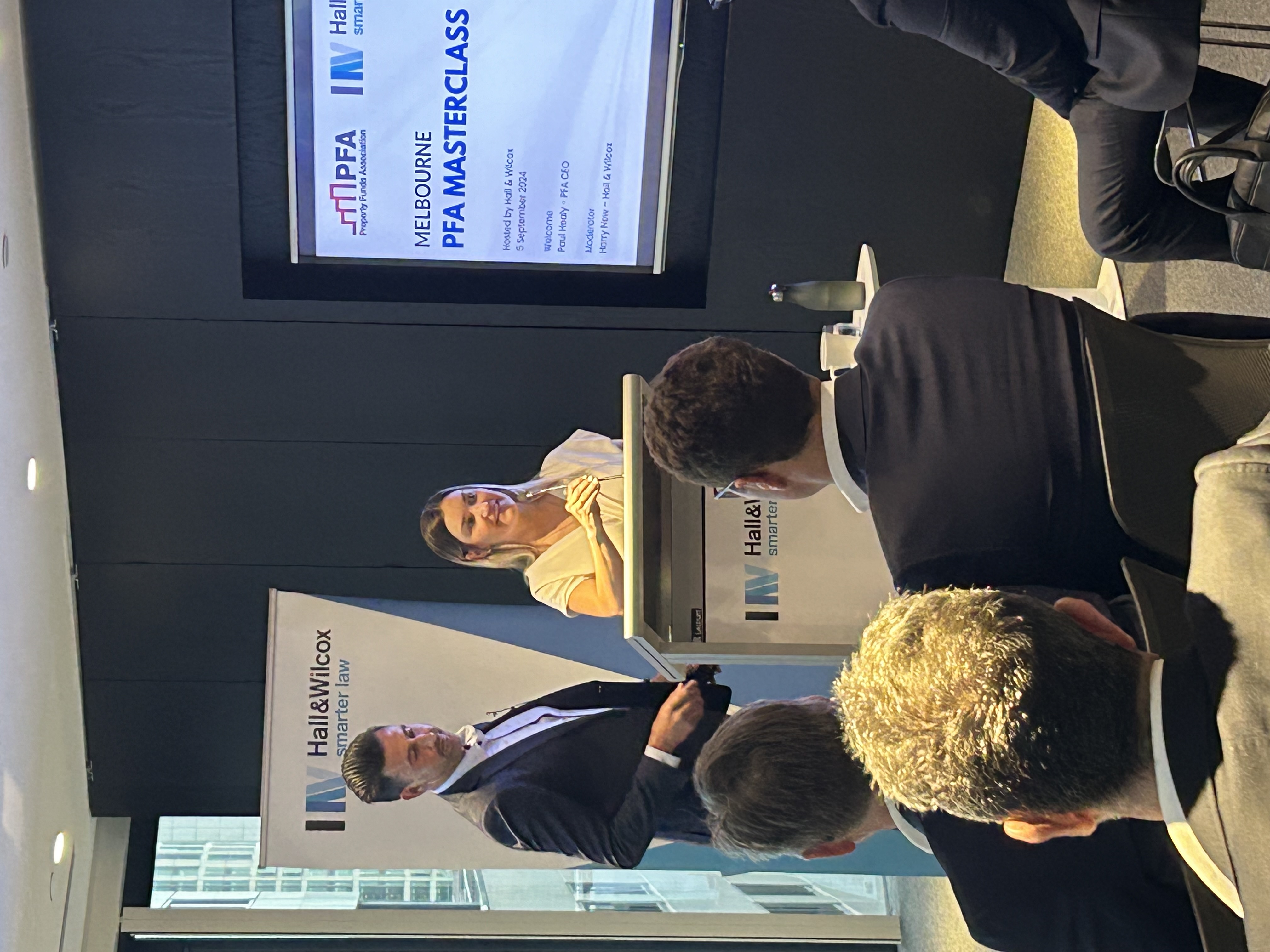The ‘king’ of due diligence which is often overlooked
 In yesterday’s boom market there was limited time for due diligence, which sometimes meant essential steps were overlooked, according to Dimity Lee, Associate Director of Investment Valuation and Capital Markets Advisory at Preston Rowe Paterson.
In yesterday’s boom market there was limited time for due diligence, which sometimes meant essential steps were overlooked, according to Dimity Lee, Associate Director of Investment Valuation and Capital Markets Advisory at Preston Rowe Paterson.
“You had to go unconditional almost immediately, fuelled by that low interest rate environment, coupled with high demand and intensified by ‘fear of missing out’.
“But in today’s market, we are currently afforded the luxury of more time, and we think it’s time to double down with due diligence.”
Ms Lee spoke at a recent Property Funds Association Master Class, together with Ashley Lane, Country Manager APAC at commercial valuation software provider Forbury, in a presentation which combined key commercial property due diligence principles with insights into Forbury’s use as a due diligence tool.
Tools such as Forbury assist the due diligence process from an asset valuation perspective, managing multiple scenarios based on variable outcomes, and graphically presenting data sets. “Forbury assists us during the due diligence process from a data manipulation and advisory perspective. It is also an asset from a time saving and risk management perspective”, Ms Lee said.
Saving time is one thing, but making the best use of it is another. Allocating resources to read and analyse lease agreements is mission critical, Ms Lee said, adding this simple step is often underestimated. “In our opinion, lease is king.
“There are enormous benefits in reading and understanding leases in any market and to all parties, including in boom times.”
Why lease is king
Rent review provisions contained in leases may seem irrelevant when markets are running hot, but soon become highly relevant when markets cool off, Ms Lee said.
Leases also contain a host of other provisions which cover incentives, contributions to fit outs, maintenance in terms of who is responsible for what, outgoings provisions, or treatment of incentives at the market rent review.
Ms Lee said it’s also important to be mindful of how and when these leases were actually interpreted, and who interpreted them. “Tenancy schedules are usually handed down from managing agents, and usually adopted as gospel.
“But we’ve had situations in the past where there has been a mismatch between the data that we’re looking at in the tenancy schedule versus what we’re looking at in the lease.
“Enquiries with the managing agents don’t always clear this up or yield the results we’re after. Sometimes they can’t explain the discrepancy, as this is what was handed down to them.”
Hence the importance of requesting and reading leases, and not relying on the tenancy schedule alone.
“The leases are going to dictate money in and money out, not the tenancy schedule – again underlining the importance of requesting and reading those leases”, Ms Lee said.
“Other scenarios we work through include new information being brought to our attention during the due diligence process, including heads of agreement being entered into for areas which are currently vacant.
“If heads of agreement have been signed for two vacant areas for example, and those vacant areas are substantial relative to the overall area of the building, it can result in a reduction to the vacancy allowance, an improvement to the WALE and the initial yield, while also providing a clearer and more accurate reflection of the current market value.”
Capital expenditure can also often be underestimated if adequate time is not allowed for due diligence. “We’ve all seen how inflation has affected our lives day-to-day, from a cup of coffee to a new clutch in the family car. Construction costs from building materials to services alike in this space has also seen unprecedented increases from a cost perspective.
“Part of our due diligence process involves reviewing the capex estimates we have been provided for maintaining, fixing or replacing part of an asset. But with significant increases having occurred over the last few years in particular, this needs to be as up-to-date as possible, which can often result in an adjustment to the value.
“As valuers it’s part of our job to recommend our clients to verify capex by the appropriate experts prior to purchase, where we see fit. In this day and age, this information can jump, and often substantially, so in our opinion it’s vital to get real time data to rely upon.
“We often see a swing in the outcome of a valuation as new information comes to light, reiterating the importance of a deep dive into due diligence. And some of those features we see in Forbury.”
Whatever the market forces hold in store for us, Ms Lee said it’s key to make sure you are taking the time to get due diligence right, and to make sure that you read and understand the leases. “Details matter. We currently have the luxury of more time, and that should be spent going back to the principals of necessary due diligence.”
PFA members benefit from access to networking and educational opportunities, industry research, and greater connection with the unlisted property funds industry – click here to find out more.
Please contact pfa@propertyfunds.org.au with any questions.
